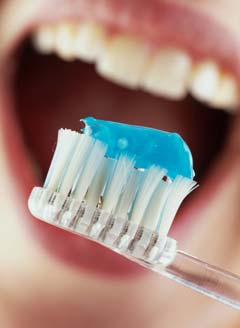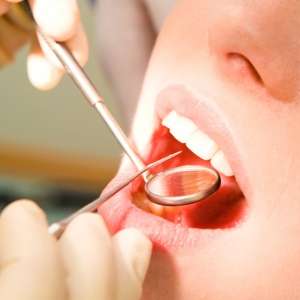New oral cancer risks identified
A new study has found that poor oral health and irregular dental checks can increase the risk of oral cancer.
The International Agency for Research on Cancer report also found excessive use of mouthwash – more than three times a day – can also increase risk.
Smoking, heavy drinking and “low socio-economic status” are established risk indicators of mouth and throat cancers.
The study covered 1,962 cancer patients and a further 1,993 control subjects across nine countries in Europe.
The study was led by the Leibniz Institute for Prevention Research and Epidemiology in Bremen, Germany, (BIPS) and backed by researchers from Glasgow University Dental School.
Prof. Wolfgang Ahrens, deputy director of BIPS, described the study findings as “really important”.
“Up until now, it was not really known if these dental risk factors were independent of the well known risks for mouth and throat cancers – smoking, alcohol and low socio-economic status,” he said.
Prof. Wolfgang Ahrens said the report findings were highly “nuanced” and there was an interconnectedness of many of the risk factors.
The definition of poor oral health included people who had complete or part dentures and people with persistently bleeding gums.
Dr. David Conway, clinical senior lecturer at Glasgow University Dental School, said: “People should not assume that if they wear dentures and have none of their own teeth left, they have no need to see a dentist.
“On the contrary, even if you have got dentures, you should make sure you go for regular check-ups.”
People with poor dental care were defined as those who hardly ever or never brushed their teeth or visited the dentist.
Dr. David Conway said the frequency of dental visits should be determined by a dentist’s risk assessment and if people fell into the low-risk category it could be once a year or even every two years.
“It is not a case of one size fits all,” he added.
“Visits could be six-monthly, but certainly not five-yearly.”
The research team said the possible role of mouthwash as a risk factor would require further research.
They were unable to analyze the types of mouthwash used many years ago by participants in the study.
Dr. David Conway added: “I would not advise routine use of mouthwash, full stop.
“There are occasions and conditions for which a dentist could prescribe a mouthwash – it could be that a patient has a low salivary flow because of a particular condition or medicine they are taking.
“But for me, all that’s necessary, in general, is good regular brushing with a fluoride toothpaste and flossing combined with regular check-ups by a dentist.”
The new study findings have been published in Oral Oncology.


